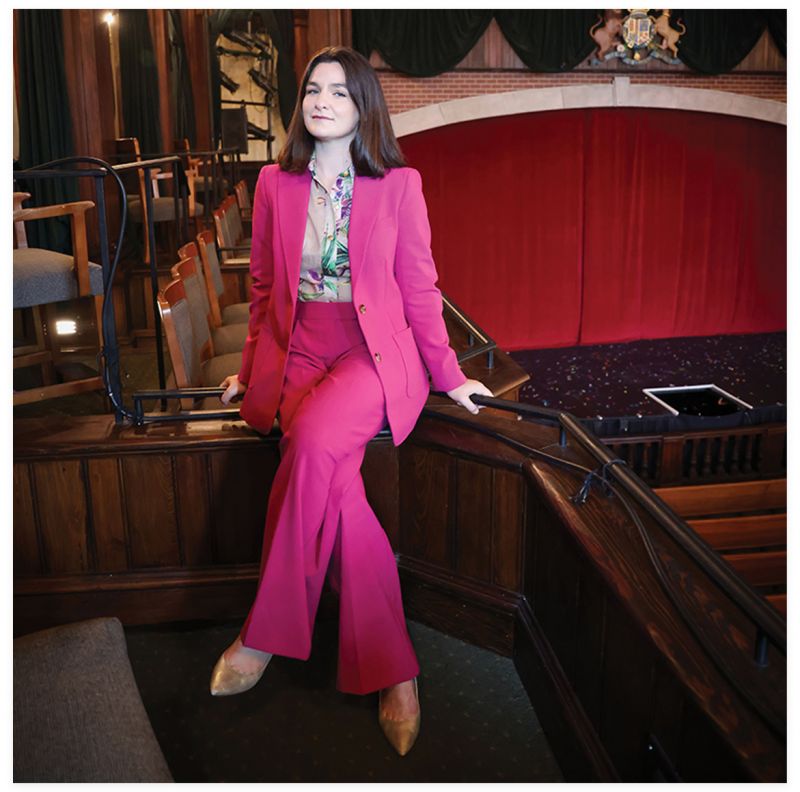“Embrace the conversation” at this month’s literary festival

Growing up in Ireland, Sarah Moriarty developed a love of literature that took her from Dublin’s Trinity College to Freie Universität Berlin, where she wrote her master’s thesis on Samuel Beckett, best known for his play Waiting for Godot. After deciding to seek more lucrative opportunities, Moriarty used her love of words to start a new chapter as a marketing expert in Berlin’s tech field, working with companies such as wellness coaching app Noom and Blinkist, an app that summarizes nonfiction.
In 2021, when her husband, Mena Mark Hanna, accepted the position as general director of Spoleto Festival USA, Moriarty again leaned on her literary knowledge to change course, landing a role as the director of marketing for the Charleston Literary Festival. In February, Moriarty was named executive director of the seven-year-old festival, which aims to “embrace, amplify, and share perspective-altering ideas.” Here, she discusses this month’s event and her goals for the future.
CM: What makes Charleston a destination for bibliophiles?
Sm: We are a city that has four book festivals. Considering the size of the city, we have such a hunger and appetite for books. People who come here for the food also want to have a rich experience, and Charleston as a literary city can provide that experience.
CM: How does the festival share perspective-altering ideas?
Sm: We can look to the past to explore where we’re going, and we can integrate shared stories to understand each other better. For instance, at this year’s festival, we have author Harlan Greene talking about The Real Rainbow Row, the often-hidden LGBTQ history of Charleston. And he will be in a conversation with James Kirchick, a journalist who worked for years in DC and wrote a book on the same kind of theme. These books are situated in different places, and the two together help us find the universal in the local. That kind of juxtaposition brings things together and helps to contextualize them.
We also have an important partnership with the International African American Museum and The Guardian newspaper in the UK. The final day of the festival will be hosted at the museum—journalists from The Guardian will be on a panel about the founder of the paper’s historic link to transatlantic slavery. In that way, we root ourselves in local histories here in Charleston and understand their national and international implications.
CM: Do you plan to make any changes during your tenure?
Sm: My goal is to keep the international ethos of the festival at the heart. We need to have international voices brought to Charleston. I [also] want to build out going into the local community and bringing value. I’m still defining what it will look like, but we’re working with students and grassroots organizations.
CM: Why is the literary festival important?
Sm: In a polarized environment, reading something and understanding the journey from someone’s else’s perspective helps you have a conversation. The theme of the festival this year is to embrace the conversation. As a festival of books and ideas, we’re uniquely positioned to bring people together, offer new perspectives, and deepen understanding.
Born: Dublin, Ireland
Lives: On the peninsula with her husband, Mena Mark Hanna, and their two children, ages three and one
Works: As executive director of the Charleston Literary Festival
Giving Back: Has volunteered with Planned Parenthood in West Ashley
Languages: Speaks Irish, French, German and is learning Spanish
Hobbies: Reading literary fiction, Rollerblading
Guilty Pleasure: Confesses she likes all the Real Housewives reality show franchises